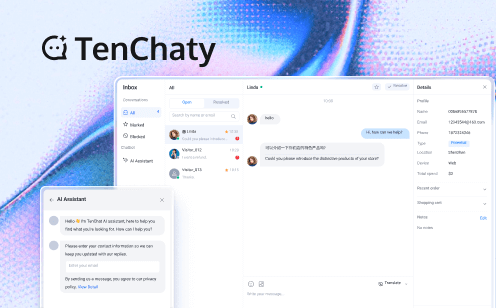
Understanding Web3 Apps: The Next Evolution of the Internet
The internet is evolving, and Web3 apps are at the forefront of this transformation. Unlike traditional apps controlled by big companies, Web3 apps are decentralized, giving users more control over their data and interactions. But what exactly is a Web3 app, and how does it work? In this guide, we’ll break down everything you need to know about Web3 apps, their benefits, and why they’re shaping the future of technology.
What is a Web3 App?
A Web3 app, or decentralized application (dApp), is built on blockchain technology, which ensures transparency, security, and user ownership. Unlike Web2 apps (like Facebook or Google), Web3 apps operate without a central authority. Instead, they use smart contracts—self-executing code that runs on a blockchain—to manage transactions and interactions.
To explain a Web3 app in simple terms, you can compare it to the apps we use every day (like Facebook, Instagram, or Uber) and highlight the key differences:
Web2 Apps (What We Use Now): These apps are controlled by companies. For example, when you use Facebook, the company stores your data, controls the rules, and can decide how the platform works. You trust them to manage your information and provide the service.
Web3 Apps (The New Way): Web3 apps are decentralized, meaning no single company controls them. Instead, they run on blockchain technology, which is like a shared, transparent database that everyone can trust. Here’s what makes them different:
You own your data: For example, in a Web3 social media app, your posts and information belong to you, not a company.
No middlemen: Transactions or interactions happen directly between users, without needing a central authority (like a bank or a platform).
Transparent rules: The app’s rules are written in code (called smart contracts) and are automatically enforced, so no one can change them unfairly.
In short, Web3 apps are about giving users more control, transparency, and freedom, while reducing reliance on big companies. It’s like the internet becoming more open and fair for everyone!
Key Features of Web3 Apps
Decentralization: No single entity controls the app.
User Ownership: Users own their data and digital assets.
Transparency: All transactions and rules are visible on the blockchain.
Interoperability: Web3 apps can work together across different platforms.
How Do Web3 Apps Work?
Web3 apps rely on blockchain networks like Ethereum, Solana, or Polygon. Here’s how they function:
Smart Contracts: These are the backbone of Web3 apps, automating processes like payments or data storage.
Decentralized Storage: Data is stored across a network of computers, not a single server.
Cryptocurrency Integration: Many Web3 apps use tokens for transactions, rewards, or governance.
Examples of Web3 Apps:
Decentralized Finance (DeFi): Apps like Uniswap or Aave let users trade and lend cryptocurrencies without banks.
Social Media: Platforms like Mastodon or Lens Protocol give users control over their content.
Gaming: Games like Axie Infinity allow players to own and trade in-game assets.
Why Are Web3 Apps Important?
Web3 apps are revolutionizing the internet by addressing key issues with Web2:
Data Privacy: Users own their data, reducing the risk of misuse by corporations.
Censorship Resistance: Decentralization makes it harder for governments or companies to control content.
Financial Inclusion: Web3 apps provide access to financial services for people without traditional banking.
Challenges and Future of Web3 Apps
While Web3 apps offer many benefits, they also face challenges:
Scalability: Blockchain networks can struggle with high transaction volumes.
User Experience: Web3 apps can be complex for non-technical users.
Regulation: Governments are still figuring out how to regulate decentralized technologies.
Despite these challenges, the future of Web3 apps looks promising. As technology improves, we can expect more user-friendly, scalable, and innovative applications that empower users worldwide.
Tecent RTC Web3 APP Solutions
Tencent Cloud Real-Time Communication (TRTC) provides technical support for Web3 applications.
Web3 Application Needs
Web3 applications, such as decentralized finance (DeFi), the metaverse, and blockchain gaming, require efficient, low-latency real-time audio and video communication to enable user interaction and collaboration.
TRTC’s Solutions
Low-Latency Communication: TRTC offers globally distributed real-time audio and video services, ensuring smooth and seamless interactions in Web3 applications.
High Concurrency Support: Capable of supporting large-scale user interactions, meeting the needs of metaverse and social Web3 applications.
Security and Privacy: Ensures user data security through encryption and compliance, aligning with Web3’s decentralized and privacy-focused principles.
Easy Integration: Provides comprehensive APIs and SDKs, enabling developers to quickly integrate real-time audio and video features into Web3 applications.

Use Cases
Metaverse: Facilitates real-time voice and video interactions in virtual worlds.
Blockchain Gaming: Enables real-time voice chat and collaboration for players.
Decentralized Social Platforms: Enhances real-time communication experiences for users.
Virtual Meetings and Events: Supports online meetings and events for decentralized organizations.
Technical Advantages
Global node coverage ensures low latency and high availability.
Supports multiple platforms (Web, mobile, desktop).
Robust anti-jitter and weak network optimization capabilities.
Web3 Apps: The Future of a Decentralized Internet
Web3 apps represent a major shift in how we interact with the internet. By giving users more control, transparency, and ownership, they’re paving the way for a more open and fair digital world. Whether you’re interested in finance, social media, or gaming, Web3 apps offer exciting opportunities to explore.


